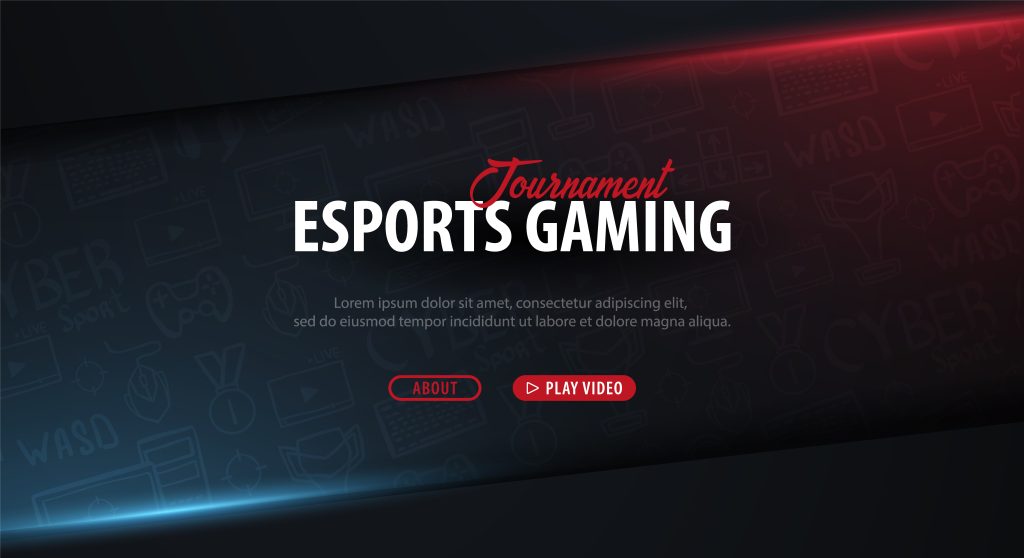- Contact Us Now: (615) 490-6020 Tap Here to Call Us
Competitive Esports: Is There a Payoff?

I am an attorney and former teacher as well as a mother and wife to a houseful of gamers. People often find it difficult to understand how I could support the idea of my kids becoming competitive Esports players or my 19-year-old son, who scored a 33 on the ACT, foregoing college to pursue a career playing video games. What those people may not know is that competitive Esports is quickly becoming the next professional sports arena with a booming industry that has generated over $900 million in revenues in 2018 and is expected to grow 38% over the coming year. Forbes anticipates the Esports economy will exceed $1.6 billion by 2021.¹ This blog will be the first in a series to help educate and inform prospective pro gamers and their families about the business of Esports, and the potential opportunities and pitfalls of pursuing a career as a competitive player.
Living in a family of gamers has led to video games being a big part of my life for the last 20 years. I have watched the technology advance and the gameplay become more and more realistic. At an early age, we knew our eldest son had skills, and his passion and commitment to master every game he played was impossible to ignore. So, when he told us he wanted to take a gap year to focus on becoming a pro Fortnite player, my husband and I viewed and supported those aspirations no differently than if he had wanted to be a professional athlete, an actor or professional musician; all pursuits which require passion, commitment, skill and talent. For a year our son worked tirelessly to hone his skills and improve his gameplay. Those efforts paid off and his dream came true when he won the PAX West Fortnite tournament this past August; a win that would change his life.
I share this personal story with you in hopes that it will inspire young players to continue the grind as well as provide some insight to families and parents who may not truly understand what Esports can bring to the table. Whether you play League of Legends, Dota 2, Call of Duty, Overwatch or Fortnite, game developers and Esports Organizations are intent on bringing Esports into the mainstream. So, before you completely discount your gamer’s dreams of going pro, consider some interesting facts about the burgeoning Esports industry that might surprise you:
- Professional sports organizations like the New York Yankees, Houston Rockets, Golden State Warriors and the Philadelphia 76ers have invested in or created Esports teams.
- Iconic celebrities like Drake, Michael Jordan and Magic Johnson have all jumped on the Esports bandwagon by investing hundreds of thousands of dollars into league teams.
- Disney just signed a multi-year deal with Activision Blizzard to broadcast the Overwatch League playoffs and finals on ABC, ESPN, ESPN2 and DisneyXD bringing Esports to primetime television.²
- Overwatch and League of Legends franchises are currently valued at more than $50 million each.
- According to Forbes, there are approximately 165 million Esports fans and spectators; this number represents 15% year over year growth.
- Pro players who are signed to teams like Cloud9, TeamSoloMid (TSM), Team Liquid, or 100 Thieves have deals that put them up in million-dollar homes, provide them with personal chefs and dieticians as well as earn an average salary of $60,000 a year.³
- The highest earning Esports player has made more than $4 million playing competitive Dota 2.
If these facts aren’t enough to alter your perspective on the gaming phenomenon, consider this. Competitive Esports is a multi-billion-dollar industry creating jobs and opportunities in a new and untapped market. Not only do players have earning potential through tournaments and team salaries, players are also making thousands of dollars as streamers and content creators. This income is generated by online subscriptions to their live streams on Twitch, ad revenue from creating content and posting it to their own YouTube channel and by selling branded merchandise on their personal or team websites. Tyler Blevins, better known as Ninja, is a prime example of this as he has reportedly earned more than $10 million in 2018 alone.
Not quite sure whether to forgo college for a career in Esports? You might be interested to know that more and more colleges and universities are forming Esports programs and offering scholarships for those players who make the cut. Some of these universities are right here, in and around Tennessee, including University of Tennessee, King University, Western Kentucky University and Georgia State University. There is even an intercollegiate organization governing these programs called the National Association of Collegiate Esports (NACE).
As you can see, there is a mountain of opportunity in the field of competitive Esports, and whether you are an aspiring pro player or the parent of an aspiring pro player, it is imperative that you educate yourself on the industry and the business before embarking on a career. Understand the legal ramifications of signing a team contract, sponsorship agreement, management contract or even a tournament participation agreement. It is easy to get excited at the possibility of being a professional Esports competitor, but don’t get caught up in the hype. Consult an experienced attorney before you sign any agreement so as to ensure your interests are protected and to best negotiate a deal that is right for you.
Stay tuned for my next blogs to further discuss the trends in this amazing new industry and what legal pitfalls to watch for.
__________________
1https://www.forbes.com/sites/mikeozanian/2018/10/23/the-worlds-most-valuable-esports-companies-1/#6402e9726a6e
2https://money.cnn.com/2018/07/11/technology/disney-espn-esports-overwatch/index.html
3https://www.esportsearnings.com















